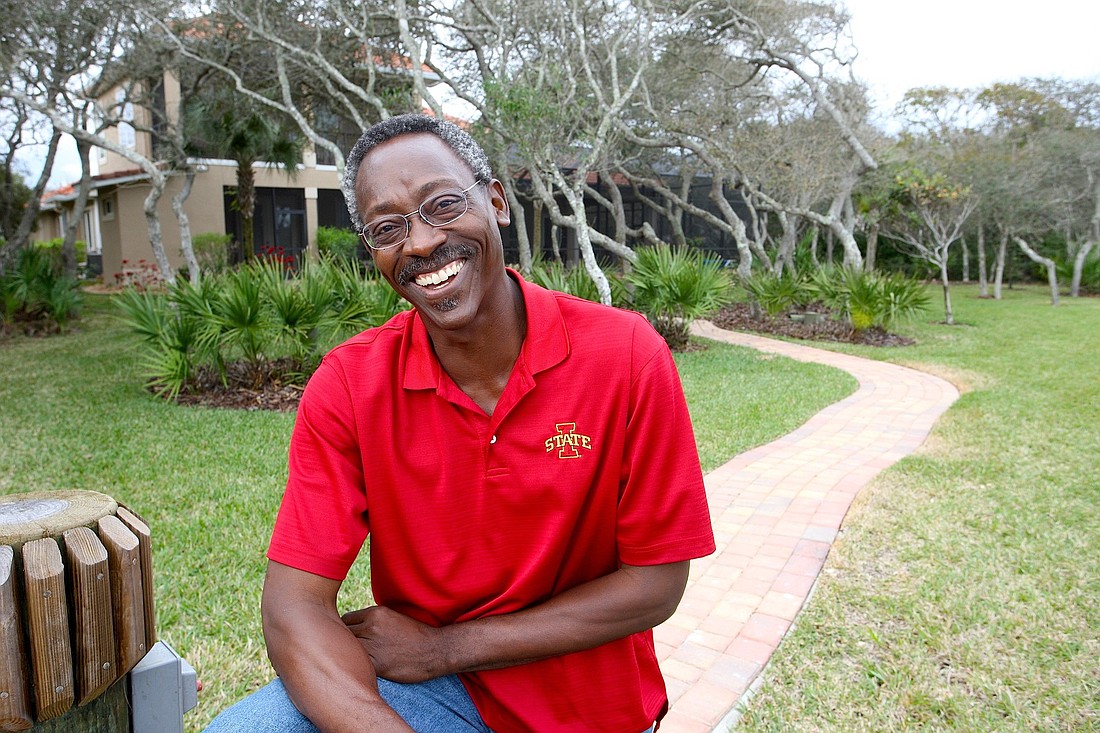- January 29, 2025
-
-
Loading

Loading

Before he ever established himself as a premier college wide receiver, before he caught his first touchdown in the National Football League, and before he was ever elected president or CEO of a Fortune 500 corporation, Ike Harris was learning the basics of life on his family’s secluded farm in West Memphis, Arkansas.
There, his mother stressed to him the importance of education and hard work, not with an aggressive voice, but with soft tone and her example. Harris, who now lives in Palm Coast, recalls an instance in his kitchen, after showing his mother his middle-school report card, where he made his first B.
“With a soft and loving voice, she told me that she was proud, if I had done my best,” Harris said. “Then, I started crying, and said, ‘Momma, I can do better.’” He would do better, even when he was academically tested.
Realizing colleges only recruited at all-white high schools, Harris transferred from his all-black high school, in the heat of segregation. There, one of his teachers made it clear that she would never give a black student an A.
“The teacher never had a black person in her class until me,” Harris said. “I didn’t necessarily have a problem with that. I told her ‘You’re a teacher; you don’t give grades. Students earn them. If I earn an F, I’ll get an F, but I’m going to earn an A, and there’s nothing you can do to stop me from earning an A.’ And, I got an A.”
At his 30th school reunion, Harris and the teacher reunited, and she shared that story with the rest of the class. The teacher told them that situation had changed her entire life about how she looked at people.
While Harris wasn’t the best athlete at his school or in the area, Iowa State saw him at a football practice while they were recruiting other players on his team. Playing out of position as a 6-foot-4 offensive linemen, Harris received a full scholarship to play as a wide receiver.
“The head coach (Johnny Majors) didn’t think I was Division I material,” Harris laughed. “They decided to take a shot on me because I made good grades, and if I didn’t work out on the field, I would still make the school look good.”
Harris did both. He excelled on the field and in the classroom, as a business major. After his sophomore season (freshmen were not allowed to play), where Harris helped the Cyclones reach a bowl game for the first time in the school’s history, he was named Best Newcomer in what was then the the Big Eight Conference.
While at Iowa State, Harris married his wife, Charlene Harris, whom he calls Iowa State’s biggest gift to him.
After three successful college seasons, Harris played in the short-lived American Football League. After a year, he was drafted in the NFL by the St. Louis Cardinals. Unlike today’s league, most players didn’t make a ton of money in the ’70s, so Harris worked at an accounting firm in the offseason. Even before making it to the NFL, he had already devised his backup plan, in case he never made it.
“If you’re pursuing a sports career, you must have a backup plan,” Harris said. “Any play can be the last play of your career, and my theory was that my plan had to include education. I can blow out a knee and an ankle, but more times than not, if God allows me to breathe, I can always think.”
Leaning on his education, Harris has flourished in the business world. He has served as vice president and corporate controller for Supervalu Inc., president of BellSouth Corp., vice chairman of Cigna Corp. and many more high-level positions.
“When God gives us a gift, I think he wants us to use it,” Harris said. “I believe my gifts are the ability to put teams together and the ability to listen. There are a lot of business situations, when the conversation begins, and I don’t have the right solution, but, I’ll listen to my team and be able to get to the right solution.”
When asked about all his accomplishments, Harris said, “I could’ve never dreamed my life. I didn’t have the capabilities or the imagination to see any of this. It’s been a constant drive to do what’s right, and there have been blessings along the way. But, you have to prepare yourself, and there’s no better way to prepare yourself than with a good education.”
BY THE NUMBRS: Ike Harris still remains one of the top receivers in Iowa State Cyclones history. As a three-year starter, Harris caught 76 passes for 1,226 yards and 10 touchdowns. Harris received the ISU Aulmann Memorial Scholarship Award for leadership and academic excellence in 1972, and was named ISU’s Black Student-Athlete of the Year in 1974.
In the NFL, he caught 211 passes for 3,305 and 16 touchdowns seven seasons with the St. Louis Cardinals and the New Orleans Saints. Harris’ played in the running back era, where quarterbacks threw the ball very little.